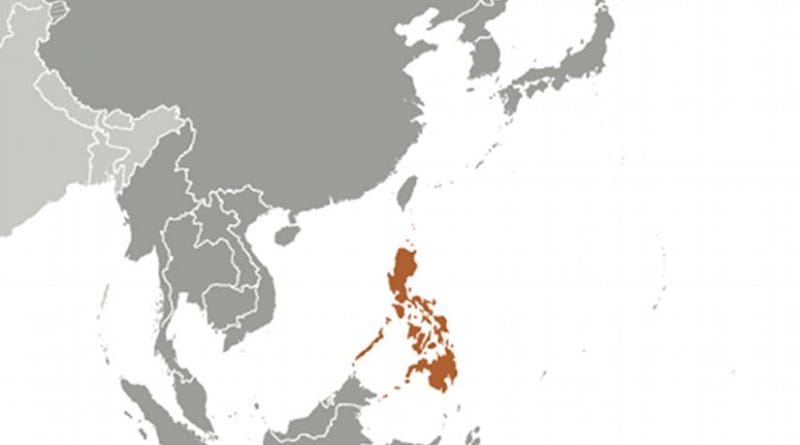US Says Sawadjaan Likely New Islamic State Militant leader In Philippines
By BenarNews
By Richel V. Umel and Joseph Jubelag
A senior Abu Sayyaf militant commander accused by local authorities of planning twin bombings that killed 22 people at a Catholic church in the southern Philippines last month has likely emerged as the new leader of Islamic State in the country, according to a senior U.S. defense official.
Glenn Fine, acting inspector general for the U.S. Department of Defense, said Abu Sayyaf sub-leader Hatib Sawadjaan was believed to be the new acting IS leader in his quarterly report to the U.S. Congress. The report covered Oct. 1 to Dec. 31 last year, but was made available to journalists in Manila only on Thursday.
“This quarter, U.S. Indo-Pacific Command reported that it had no update on the status of an ISIS-Philippines emir, but it still believed Hatib Sawadjaan, an Abu Sayyaf Group (ASG) sub-unit commander, was the acting emir,” the report said, using the other acronym for IS.
Sawadjaan is currently the target of a massive military operation in Jolo, where the military and police accused him of masterminding the twin blasts that hit the town’s Cathedral of Our Lady of Mount Carmel on Jan. 27.
Five other Filipino militants have been captured by police last week. Authorities allege that the five men worked with a couple, believed to be Indonesians, who carried out the bomb attacks under the direction of Sawadjaan. Members of Densus 88, Indonesia’s elite counter-terror police unit, arrived in Manila on Monday to help probe those suspicions.
The report identifying the IS emir or leader in the Philippines was significant because no “unified leader” for the terrorist group has clearly emerged in the Philippines after the death of Isnilon Hapilon in October 2017.
Hapilon, the acknowledged chief of IS in the Philippines, was killed at the end of the takeover of the southern city of Marawi. Fighter jets pounded the militants with nearly daily bombing runs, destroying the formerly scenic Muslim trading hub, but ultimately ending the five-month siege. The battle to break the militant takeover left more than 1,200 people dead, most of them militants.
While the IS did not confirm a new emir after Hapilon’s death, Sawadjaan was known to be in command of a pro-IS faction.
Abu Dar, who also fought in Marawi but escaped as Filipino troops closed in on the rebel positions at ruined city, was initially thought to be next IS leader in terms of seniority.
Two days before the Jolo cathedral bombings, the military overran what it said was a jungle encampment of Dar, also known as Humam Abdul Najb, near Marawi, although officials said the militant had escaped.
Dar, is believed to be a cousin of the Maute brothers, who plotted the siege in Marawi with Hapilon. He is believed to be the highest-ranking Filipino leader of Marawi militants, and is said to be the next in line to inherit the IS leadership.
Continued US assistance
Fine, who became the acting inspector general in 2016, justified Washington’s military assistance of $61.9 million (about 3.2 billion pesos) to Manila, as he also discussed in his report Washington’s Operation Pacific Eagle-Philippines, which was created by the U.S. defense department in 2017 “to support the Philippine government and military in their efforts to isolate, degrade, and defeat Islamic State.”
As part of that operation, about 250 U.S. troops, including 102 special operations forces members and 14 military contractors, flew a fleet of drones targeting the militants during the Marawi siege, the U.S. newspaper Marine Times said in August last year, quoting an earlier report from Fine’s office.
Fine said the aid package would “help enhance the intelligence, surveillance and reconnaissance (ISR) capacity of Philippine forces to better track and target terrorist organizations.”
Included in the ISR assistance to the Philippine military are a training package, software, unmanned aerial vehicle systems, tactical command posts and other equipment.
Citing an analysis of the US Indo-Pacific Command, Fine said that IS-inspired groups in Mindanao “made no progress in expanding [their] areas of operations of influence” after their defeat in Marawi.
Interior and Local Government Secretary Eduardo Año confirmed on Thursday that Sawadjaan has emerged as the new leader of the IS-inspired groups in Mindanao.
“Before it was Abu Dar who is the candidate, Now it is Sawadjaan who is overall [leader],” he said.
However, Año said, Sawadjaan did not replace Hapilon, as the emir of IS in Southeast Asia.
“He did not pledge allegiance to ISIS, he remains a traditional Abu Sayyaf, but after the death of Hapilon and they looked for a new leader, it was Sawadjaan,” Año said.
Philippines authorities have filed murder charges against five companions of Sawadjaan in connection with the Jolo bombings.
Jeoffrey Maitem in Cotabato City contributed to this report.

